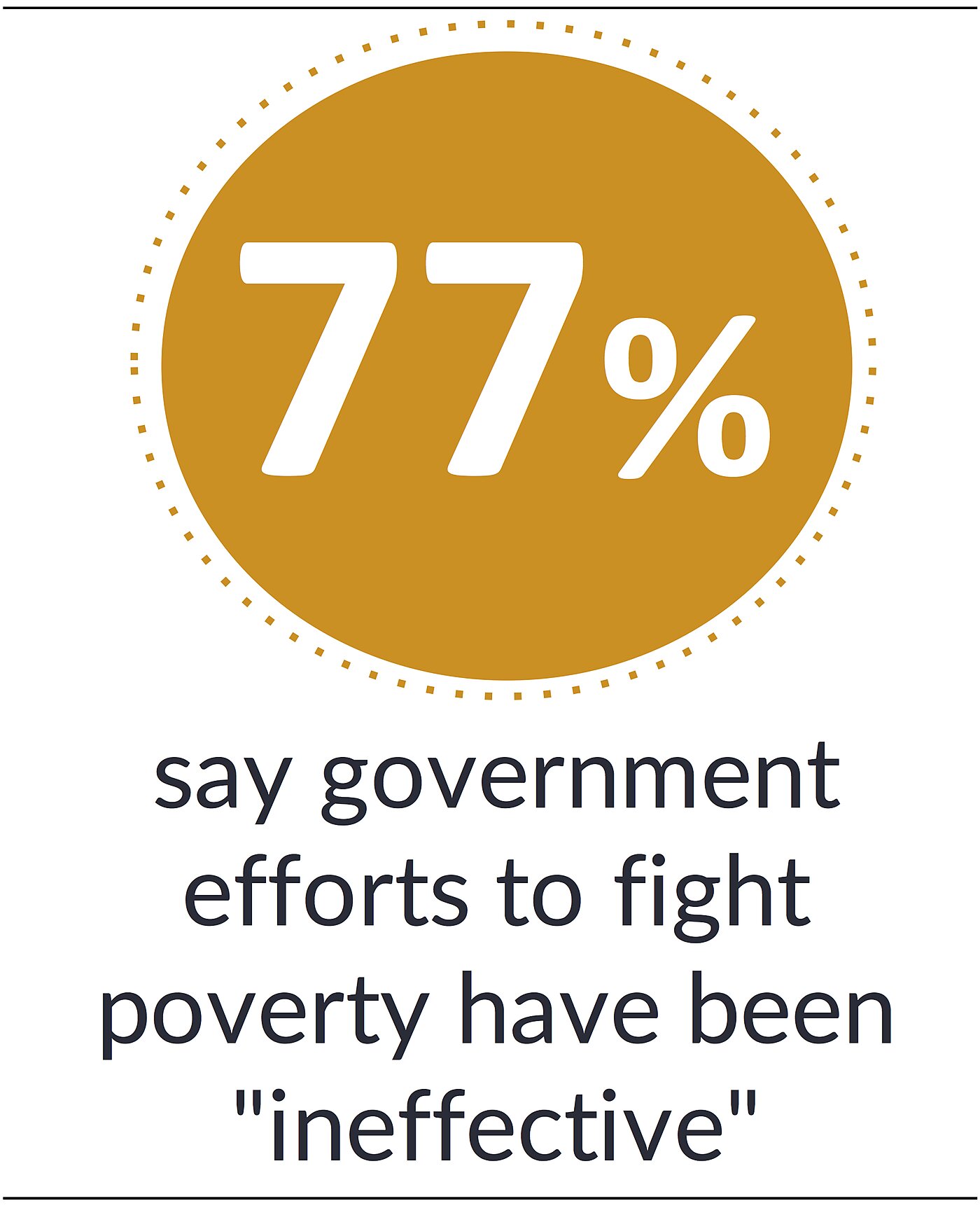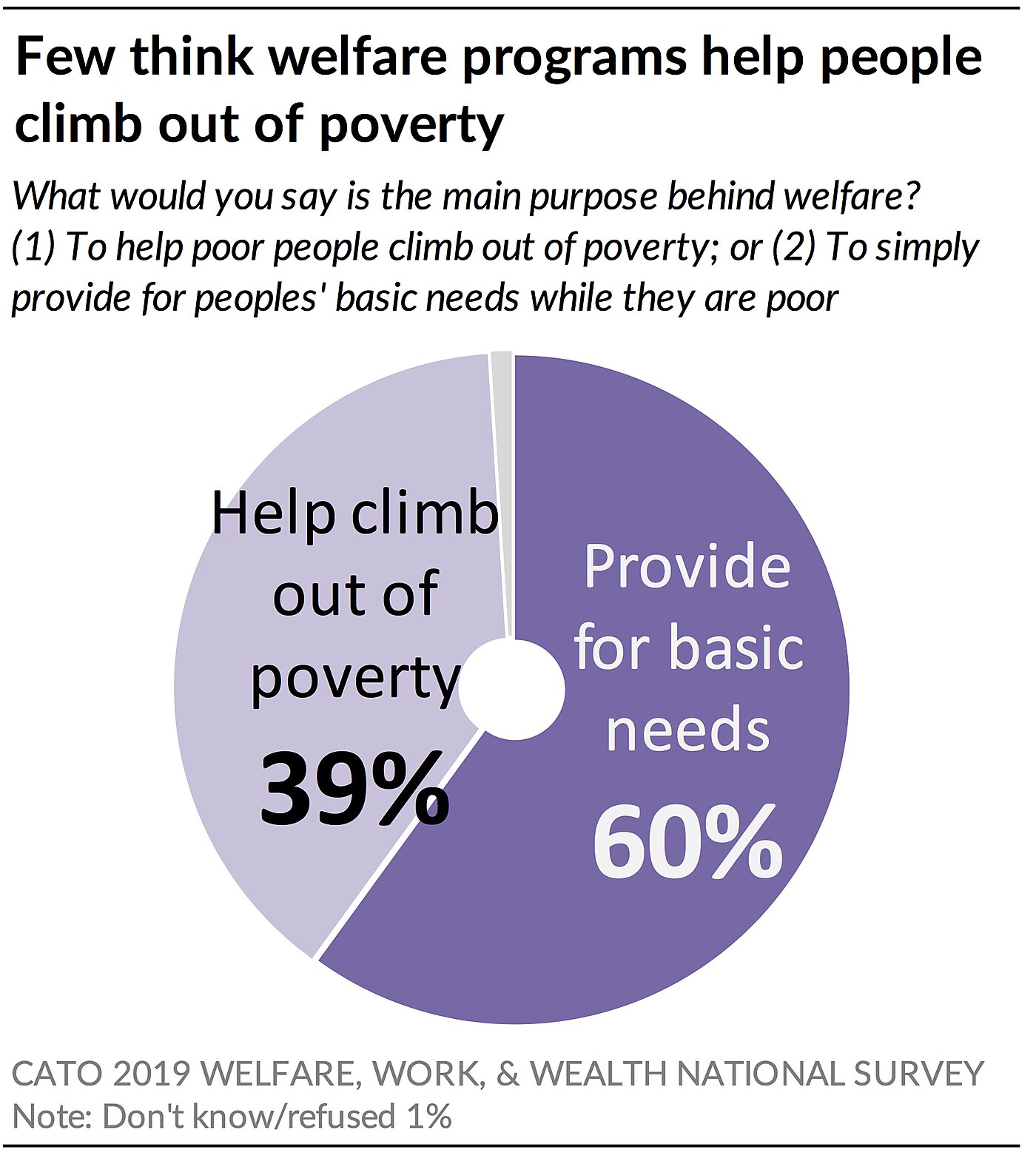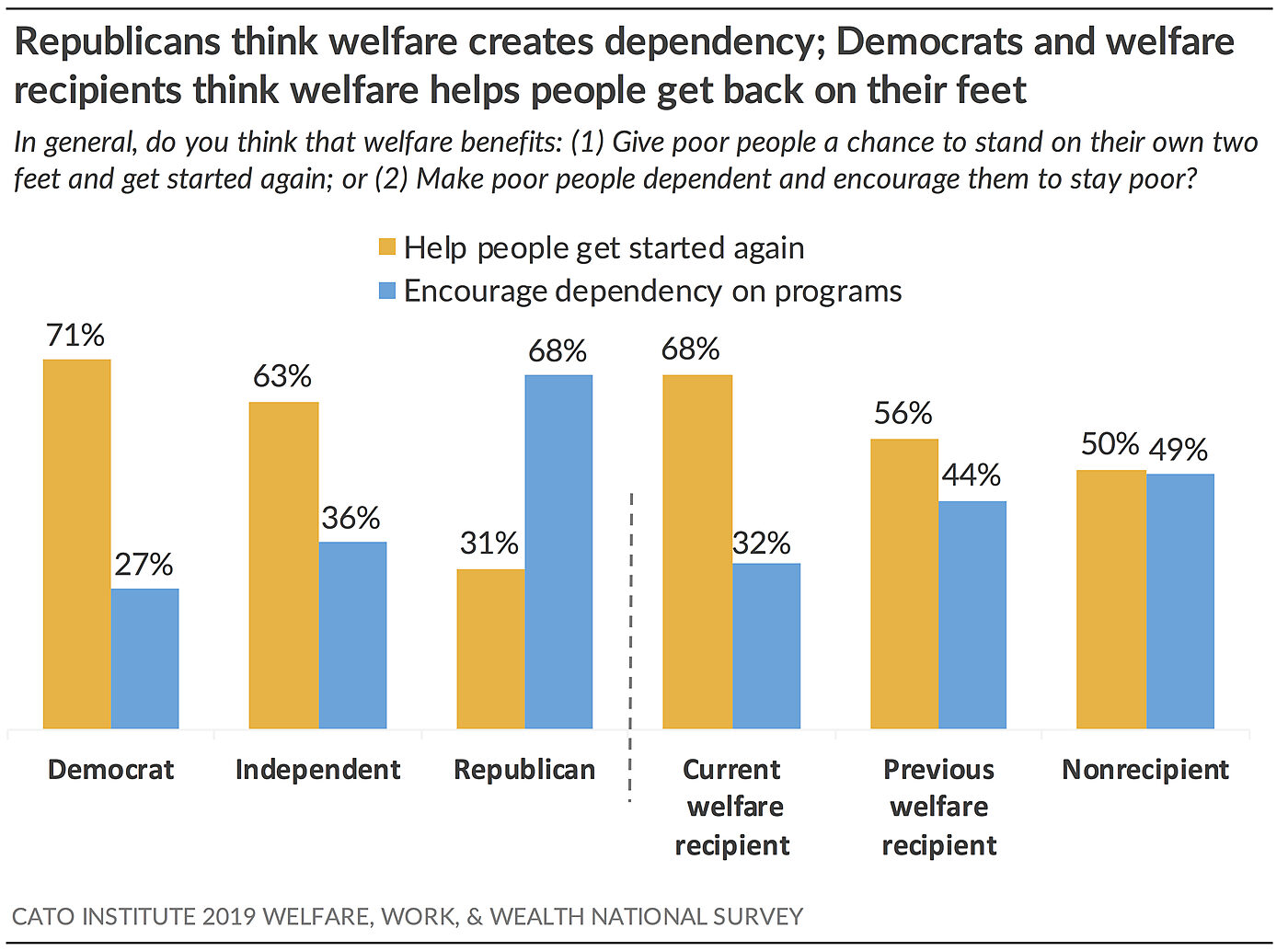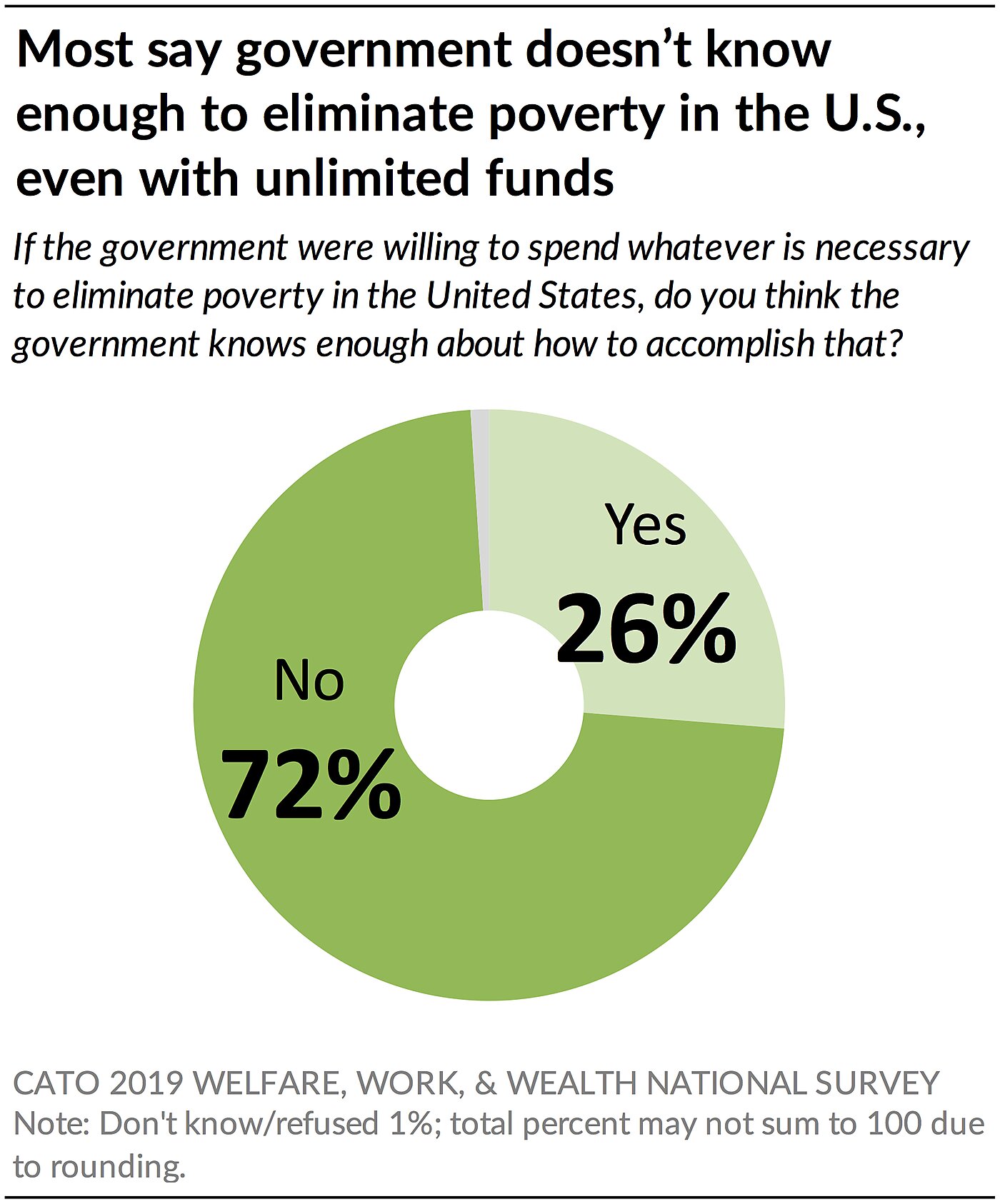The Cato 2019 Welfare, Work, and Wealth National Survey finds that 77% of Americans say government efforts to fight poverty over the past 10 to 15 years have been “ineffective.” A quarter (23%) disagree and say anti‐poverty efforts have been effective.
This perception is not controversial, with majorities of welfare recipients (63%) and nonrecipients (80%), Democrats (73%), independents (72%), and Republicans (83%) in agreement that the government’s war on poverty hasn’t worked.
Full survey results and report found here.
60% of Americans Don’t Think Welfare Programs Are Designed to Lift People
Out of Poverty
Perhaps part of the reason is that Most Americans believe that government welfare programs are not designed to help people climb out of poverty. Instead, 60% believe these programs “simply provide for peoples’ basic needs while they are poor” rather than help them “climb out of poverty” (39%).
Majorities of both welfare recipients (53%) and nonrecipients (62%) agree these programs simply provide for basic needs rather than help people get out of poverty.
68% of Republicans Believe Welfare Creates Dependency; 71% of Democrats Think Welfare Helps People Get Back on Their Feet
Although Americans don’t believe welfare programs lift people out of poverty, most don’t believe these programs hold people back either. A little less than half (45%) believe welfare programs “make poor people dependent and encourage them to stay poor.” Instead, a majority (54%) think they offer poor people “a chance to stand on their own two feet and get started again.”
An overwhelming majority (68%) of welfare recipients believe welfare programs give people a chance to restart rather than foster dependency. Nonrecipients are less certain, with 49% who believe programs make people dependent on them and 50% who think they help people get a fresh start. Americans who previously received welfare benefits fall in between: 56% believe the benefits help people restart and 44% worry they create dependency.
About two‐thirds of African Americans (67%), Latino Americans (64%), and people under 55 (60%) don’t believe welfare benefits create dependency. White Americans are evenly divided (49%). Those 65 and over believe such programs perpetuate poverty (59%).
Partisans view the effects of welfare differently. Democrats and independents believe welfare benefits give poor people the opportunity to get back on their feet (71% and 63%). But about as many Republicans believe such programs encourage dependency and perpetuate poverty (68%).
72% of Americans Say Government Doesn’t Know Enough to Fix Poverty
Nearly three‐fourths (72%) agree that even “if government were willing to spend whatever is necessary to eliminate poverty,” the government doesn’t “know enough about how to accomplish that.” A quarter (26%) believe government could end poverty if only it would spend enough money.
Democrats (67%), independents (73%), Republicans (77%), welfare recipients (58%) and nonrecipients (75%) agree that the government doesn’t know how to fix poverty.
Discussion
Interestingly, although most agree government doesn’t know how to fix poverty, a majority of Democrats (66%) and welfare recipients (65%) support increasing anti‐poverty spending, such as on food assistance. Conversely, Republicans (83%) and people not receiving welfare do not favor an increase (63%).
This suggests that people don’t necessarily support expanding social welfare programs because they believe the programs will fix poverty. Instead, attitudes about expanding the welfare state may have more to do with reducing the vulnerability of those receiving the programs. Thus, opinions about welfare spending may depend on what level of security people think is required for those in poverty, rather than if the program helps people escape poverty.
Read more of the survey report here.
The Cato Institute 2019 Welfare, Work, and Wealth Survey was designed and conducted by the Cato Institute in collaboration with YouGov. YouGov collected responses online March 5 to 8, 2019 from a representative national sample of 1,700 Americans 18 years of age and older. The margin of error for the survey is +/- 2.2 percentage points at the 95% level of confidence.





